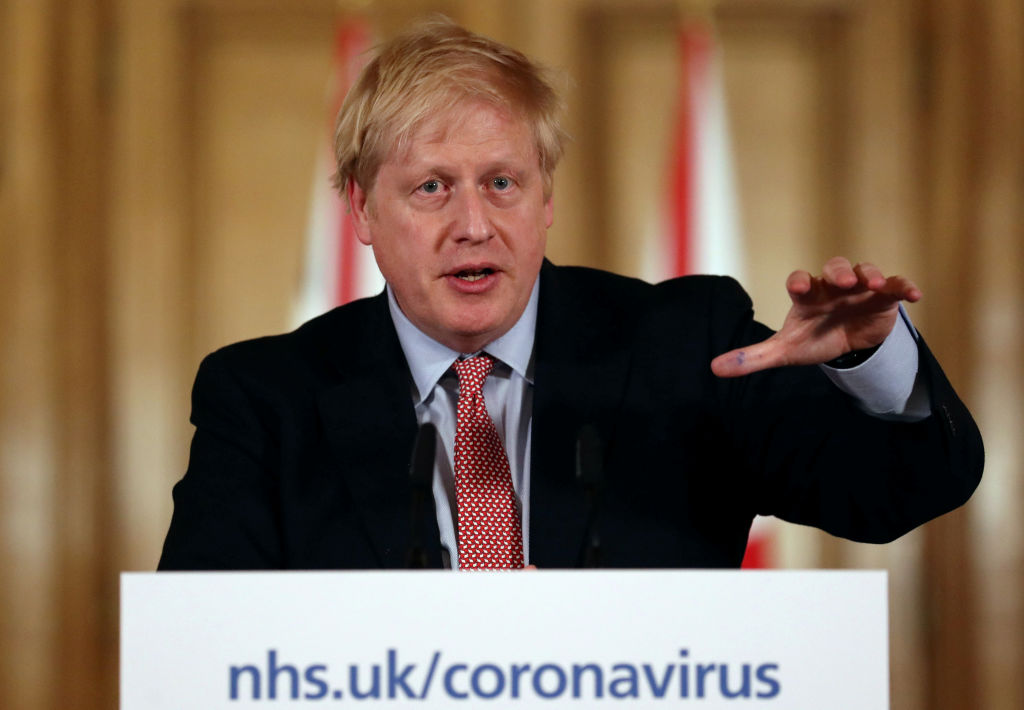It turns out that the biggest problem associated with lockdown hasn’t been the ‘covidiots’ – that tiny minority of people who ignored social distancing measures – but the ‘hunker in the bunker’ brigade who, after six weeks of house arrest, can barely envisage ever returning to normal life.
Opinion polling shows the UK has one of the most risk averse populations in the world when it comes to the notion of restrictions being lifted.
Nearly three quarters of us say we will be ‘very nervous’ about leaving home when limitations on our movement are removed, according to Ipsos Mori. Another poll, from YouGov, found that 28 per cent of us don’t want lockdown lifted – even if the Government’s five tests to ease restrictions are all met in full.
As if to underline the point, the football pundit Stan Collymore has just conducted an informal poll asking the following question: ‘Your team has special dispensation to play in a full home stadium next Saturday, with an “enter at your own risk” waiver to sign pre-entry. Do you go in?’ Of more than 28,000 respondents, only 24 per cent said yes, while 72 per cent voted no.
The British people should not need to earn the right to be trusted to go about their own business
When the nation’s football fanatics overwhelmingly dislike the idea of going back to watch their team, you can be sure that the needle denoting our national mood currently points to ‘trepidation’ rather than ‘gung-ho’.
So why, as all eyes turn to the Prime Minister’s scheduled address to the nation on Sunday, is informed opinion telling us that a new series of extraordinary coercive controls is being considered? The most controversial would involve forbidding many over-70s from going out in public for months. Then there are possible ‘immunity passports’, giving extra freedoms to those who can show they have already had coronavirus. The possibility of hermetically sealed ‘social pods’ of up to ten people permitted to hang out together has even been raised.
Boris Johnson has already become the most statist prime minister in British history through the economic and social controls he has implemented to deal with this disease. In the days before we were forbidden from sitting on park benches, informal social distancing and then full lockdown was sold on the basis that there was no alternative. Even our naturally liberal-minded, anti-nanny-state premier had been persuaded the controls were essential, we were told, despite instinctively hating the idea of them.
Well, he doesn’t appear to hate them quite so much now. The very thought of the old Boris – before his Covid brush with death – entertaining the idea of permitting some citizens to start resuming a more normal life, while legally forbidding other citizens from doing so, seems outlandish.
He would surely have recognised that such a notion ran counter to two key pillars of Conservative philosophy – individual liberty and personal responsibility – and then rejected it very quickly.
The British people should not need to earn the right to be trusted to go about their own business. But even if you think they do need to earn that right in times of emergency then by any yardstick they have passed the test with their uncomplaining, good-natured compliance these past two months and their mood of caution now.
The way forward is to trust people to make their own decisions. Every person is far better-placed to make their own cost-benefit judgments about particular activities than the state on their behalf.
An elderly grandparent may, for instance, choose to attend a grandchild’s birthday party – despite it being riskier than sitting at home alone – but will probably not wish to take a similar risk just to aimlessly shop on a Saturday afternoon. The over-70s, BAME citizens, men, those with underlying conditions and other people in higher-risk categories simply need to be given information in order to make informed choices.
We have always lived in a society where optimal health outcomes have been balanced against other factors such as personal freedom and economic imperatives. Otherwise smoking and drinking would have been made outright illegal, as indeed would driving a car.
So with the all-important ‘R’ number now well below one, with hospital admissions falling fast (and the economy falling fast as well) and the Nightingale Hospital programme being unwound, the ‘edict’ phase of this crisis needs to end.
The only excuse for bringing it back would be if general irresponsibility drove the reproduction rate of the virus back up to levels that threaten to overwhelm NHS capacity.
Naturally the Prime Minister is a changed man – we are all shaped by our experiences as well as by our basic personalities. But Boris Johnson should recall that he owes his occupancy of 10 Downing Street to his readiness to trust the British people on Brexit.
He must start trusting them again. A fireside chat about the need to be sensible in the months ahead – accompanied by a timetable for the resumption of economic and social activities – will do just fine on Sunday. But more laws about what people are not allowed to do will merely suggest that our famously leonine leader could be turning into the lion from the Wizard of Oz, the one that had lost ‘the nerve’.







Comments